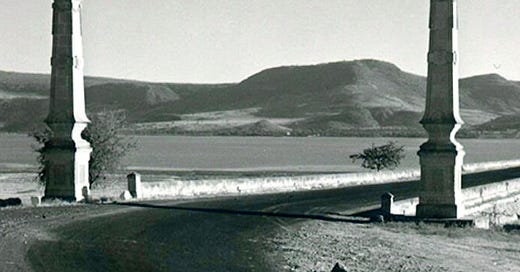Book Review: Fury by Clyo Mendoza
It isn’t actually the same story. Didn’t you notice that I’ve changed some of the details? Does it bother you that I’m telling it again?
No, it doesn’t bother me; I’m just wondering what that story has to do with us now, he thinks, but doesn’t reply.
When he finds out that his lover is missing, a character in the novel Fury approaches a security guard. But he is unable to describe her other than to repeatedly shout that she's a woman. He cannot say what she looks like or even her name. This is exactly my situation when I am planning to write about the award-winning Mexican poet Clyo Mendoza's debut novel. It is difficult to describe the novel in precise words, like you can easily do with most of the other books. It has a very formless kind of plot that shatters conventional notions and covers a lot of ground in a few words.
The plot flows through multiple narratives, circling in on itself many times, repeating several story beats (look at a meta-reference quoted at the beginning), but in distinct contexts at each time, and like a wayward horse, throwing the reader frequently off its back. To summarise, reading this novel is like an adventure trip. Christina MacSweeney, who has translated it to English, advises her readers to read it 'attentive to its voices and music, hearing them silently or sharing them aloud...'. Its publisher, Seven Stories Press, provided me with a review copy through Netgalley.
The book consists of five parts, and each part begins like a new story, only to gradually converge into a single plotline by the end. The chapters follow a non-linear structure and begin when two soldiers from opposite sides decide to desert together and fall in love. When doubts about the morality of their relationship kill one of them, the other realises that they are in fact stepbrothers, thereby adding another level of moral conundrum. We travel in time into their past and future, finding many other characters involved in the drama and witnessing a tale of love, grief, revenge, violence, lust, and most importantly, fury, which emerges as an underlying emotion that generates all of the others.
The writer adopts the style of traditional folk tales. The language has an inherent simplicity, and the plot has an irreverence to hard facts. The loose narrational voice and minimal regard for continuity or cohesion constantly remind us of oral story-telling. As expected, the poetic background of the writer endows a lyrical quality to her prose. I would say the plot is a bit more cohesive than Flights by Olga Tocarczuk and a little less surreal than One Hundred Years of Solitude by Marquez.
It's very interesting to see how the writer repeats certain characters, plot devices, story beats, and even sentences in the novel. We find Trader, a mysterious character who appears out of nowhere during important events, recounts bizarre stories, and leaves after gifting gold coins. These coins appear and reappears many times in the plot. But more curiously, we witness that the stories that he recounts also appear and sometimes reappears. We also find instances where the thoughts or words expressed by one character are repeated by another character without their knowledge. These aspects provide a deeper level of mystery and complexity to the narration.
The novel is set in an unforgiving desert during the times of a brutal war. This background acts like a labyrinth, and the inability to escape it fuels the fury inside the characters, resulting in chaotic situations. But the novel ends on an optimistic note, with an oasis of love blooming in even the most barren desert. Fury by Clyo Mendoza happens like a force of nature. An exasperating experience that's equally contemplative and hallucinative, this book portrays a surreal desert that brings out the worst in its characters and shows us how they descend into their personal hell.




